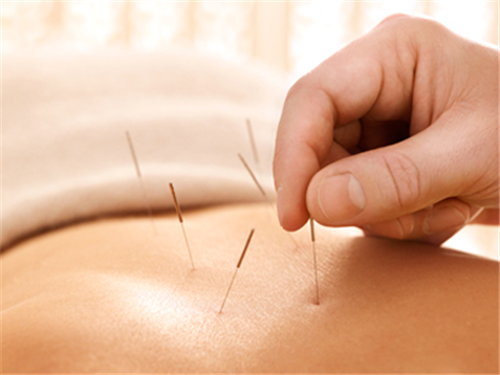Sleep apnea is a serious and common condition marked by pauses in breathing (or shallow breaths) while you sleep. Occurring up to five (or more) times per hour, breathing pauses may last 10 to 20 seconds or longer. Sleep apnea often disrupts sleep, resulting in poor sleep quality and daytime sleepiness.
1. Acupuncture
Acupuncture is one of the few types of alternative medicine that shows promise in the management of sleep apnea. However, most of the studies testing acupuncture's effectiveness as a sleep apnea treatment have included only a small number of patients.
In one study published in 2009, for instance, researchers assigned 30 people with obstructive sleep apnea to treatment with three to five acupuncture sessions per week. After 30 sessions, the patients showed significant improvements in factors such as hypoxia(the medical term for the absence of oxygen). An earlier study of 26 patients with obstructive sleep apnea found that those assigned to 10 weeks of weekly acupuncture treatment had greater relief of sleep-apnea-related respiratory problems (compared to those who received no treatment).

Acupuncture
2. Lose Weight
The vast majority of sleep apnea patients are overweight, and many of those who lose weight find their apnea to disappear immediately. One study, out of the Karolinska Institutet in Sweden found that 20 percent of study participants were completely cured of sleep apnea by an aggressive weight loss program. Others who lost weight saw a significant reduction in symptoms. Any weight loss program must include a healthy diet and regular exercise. Exercise may have its own effects on apnea, training the muscles and otherwise spreading oxygen throughout the body.
3. Change Your Sleep Position
When you lie on your back, you encourage the throat muscles to close up, and your tongue to fall towards the back of your throat. By simply moving to your side, you can reduce this discomfort and potential trigger of apnea episodes. Also, reducing the number of pillows you use allows the neck to rest at a more natural angle, not pushing your chin towards your chest and opening your airways.
4. Vitamins/Minerals
Several different vitamins and minerals have been shown to improve the symptoms of sleep apnea. Neurologist Dr. Stasha Gominak, a specialist on sleep, found that the majority of her patients complaining of sleep apnea also had a vitamin D deficiency. By increasing vitamin D consumption, they decreased or even eliminated the symptoms associated with sleep apnea. Who would have thought that simply spending time outdoors could be among natural sleep apnea treatments.
A study from the American Journal of Respiratory and Critical Care Medicine found that vitamin C can reduce the damage of sleep apnea. Scientists have found that apnea can have damaging effects on the cells, but vitamin C can counteract that damage. By increasing vitamin C consumption while treating your apnea, you can reduce the potentially dangerous effects of the sleep disorder.
5. Magnesium
Magnesium is a mineral that is vital to muscle regulation. Because apnea is a problem with the muscles of the upper throat, ensuring you have enough magnesium in your diet is crucial.
6. Herbal Remedies
A number of different herbal sleep remedies could help with various sleeping issues, Whether it be sleep apnea, narcolepsy or delayed sleep syndrome. Lavender (Lvandula angustifolia, Lavandula officinalis) and California Poppy (Eschscholzia californica) are two such herbs that could be of great benefit.

![Diseases, Symptoms, tcm, [tcmwindow.com]](/uploadFile/adImg/2015/11/11/f5cbfcc0-4df5-4646-9b9a-f316651a0199.jpg)





